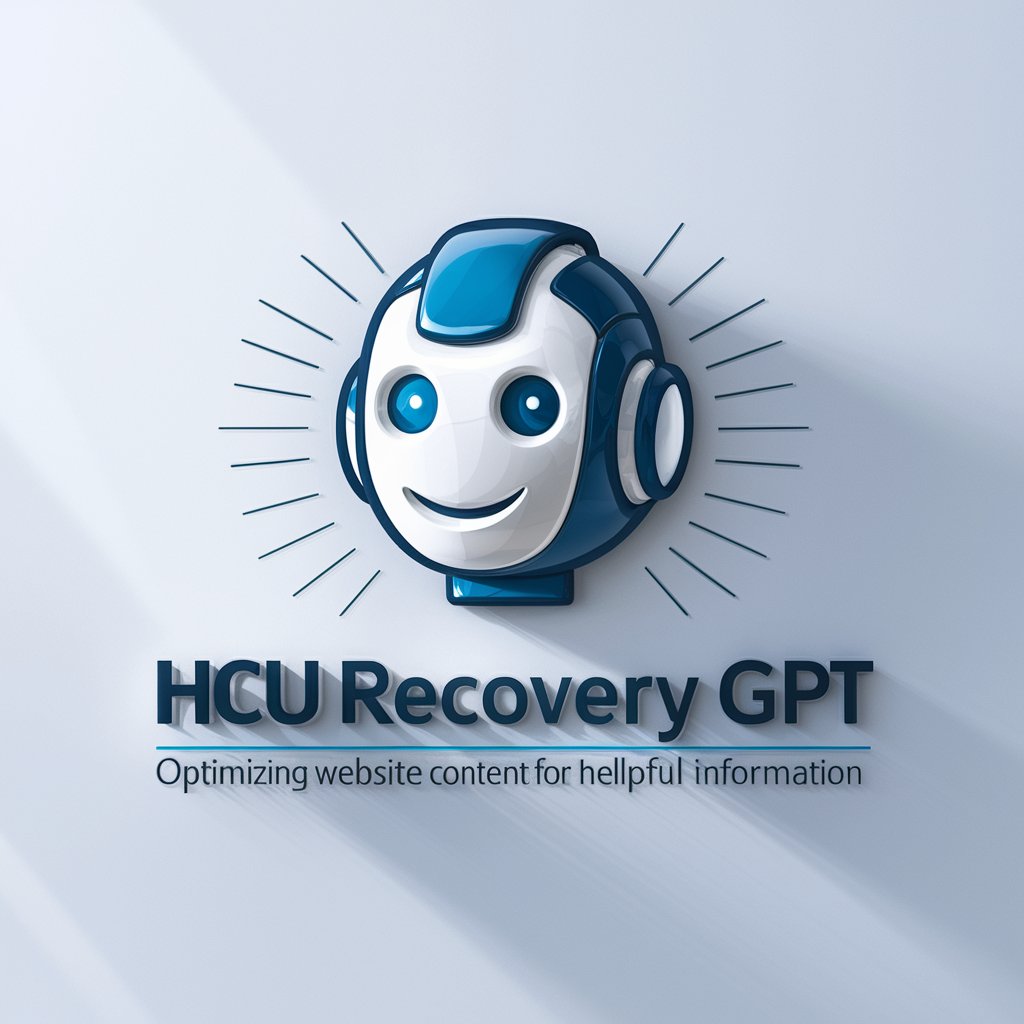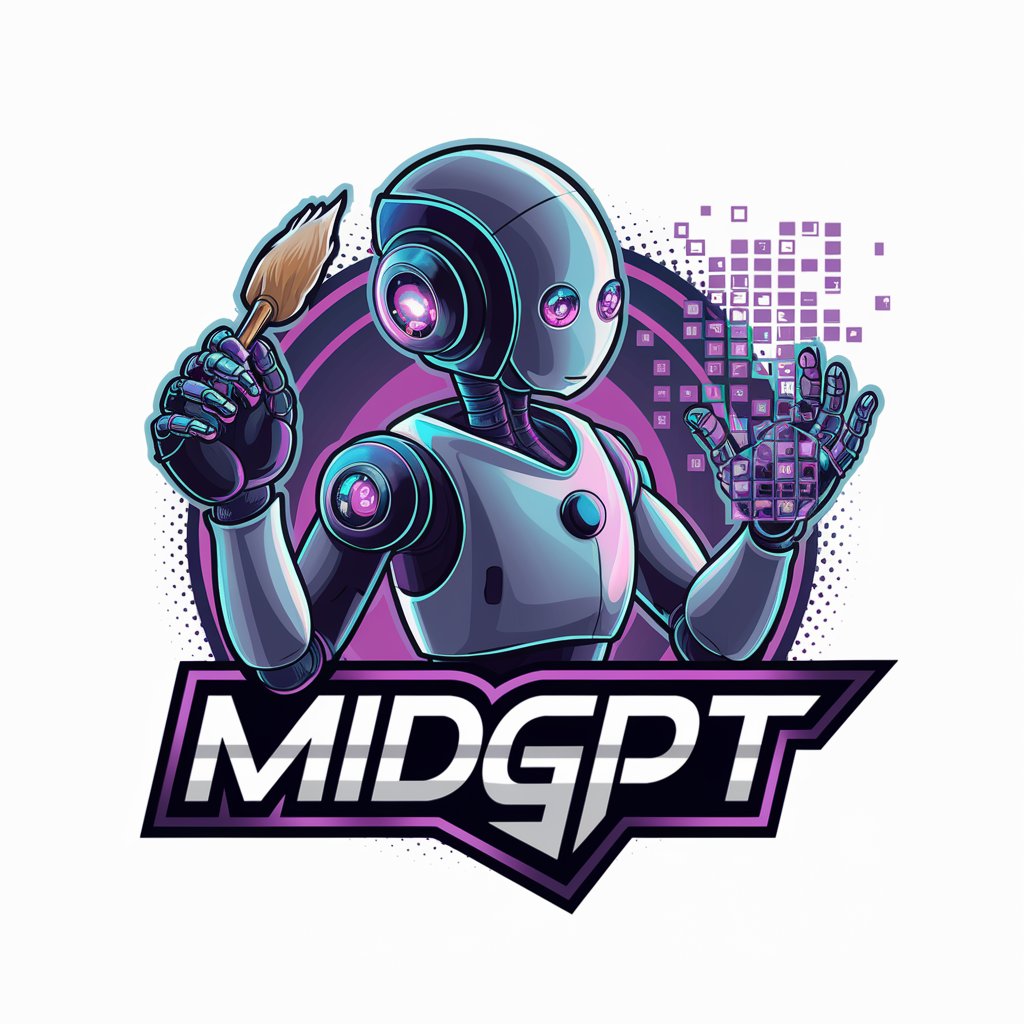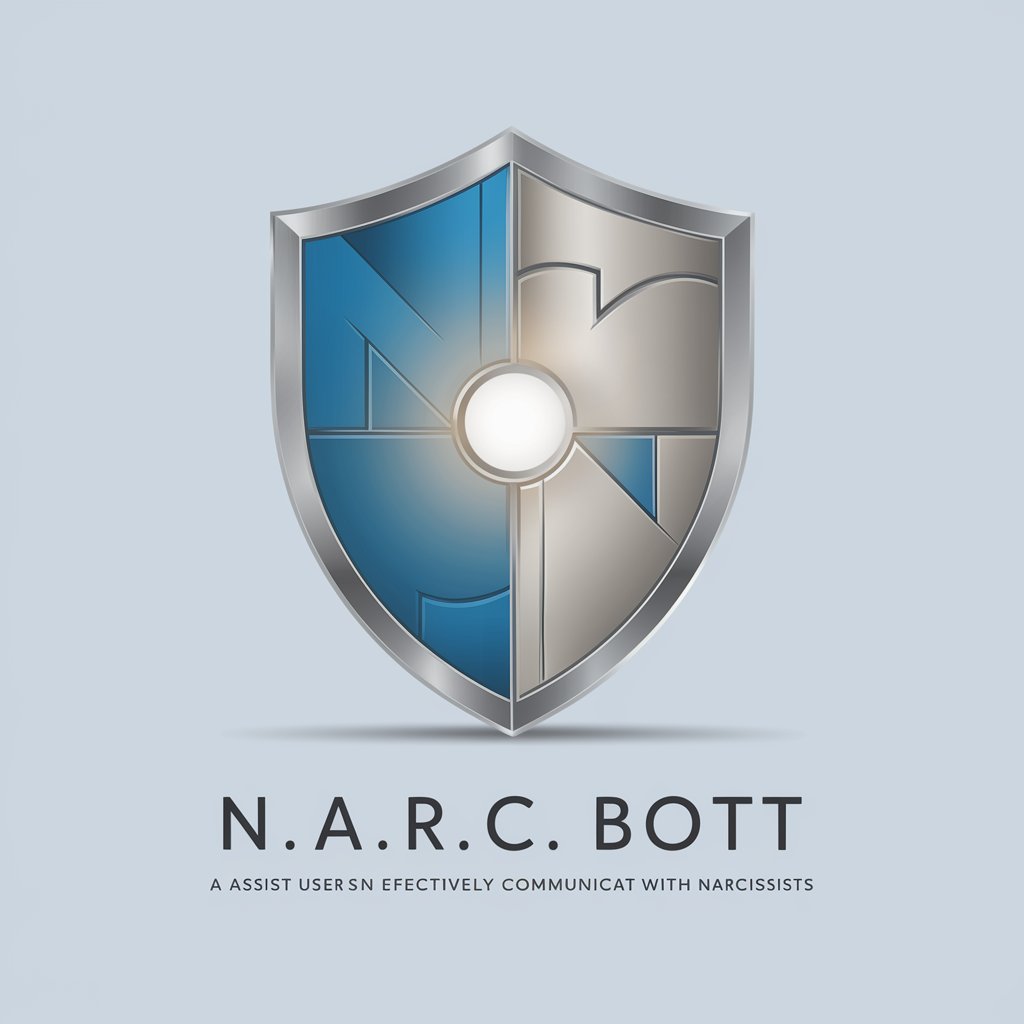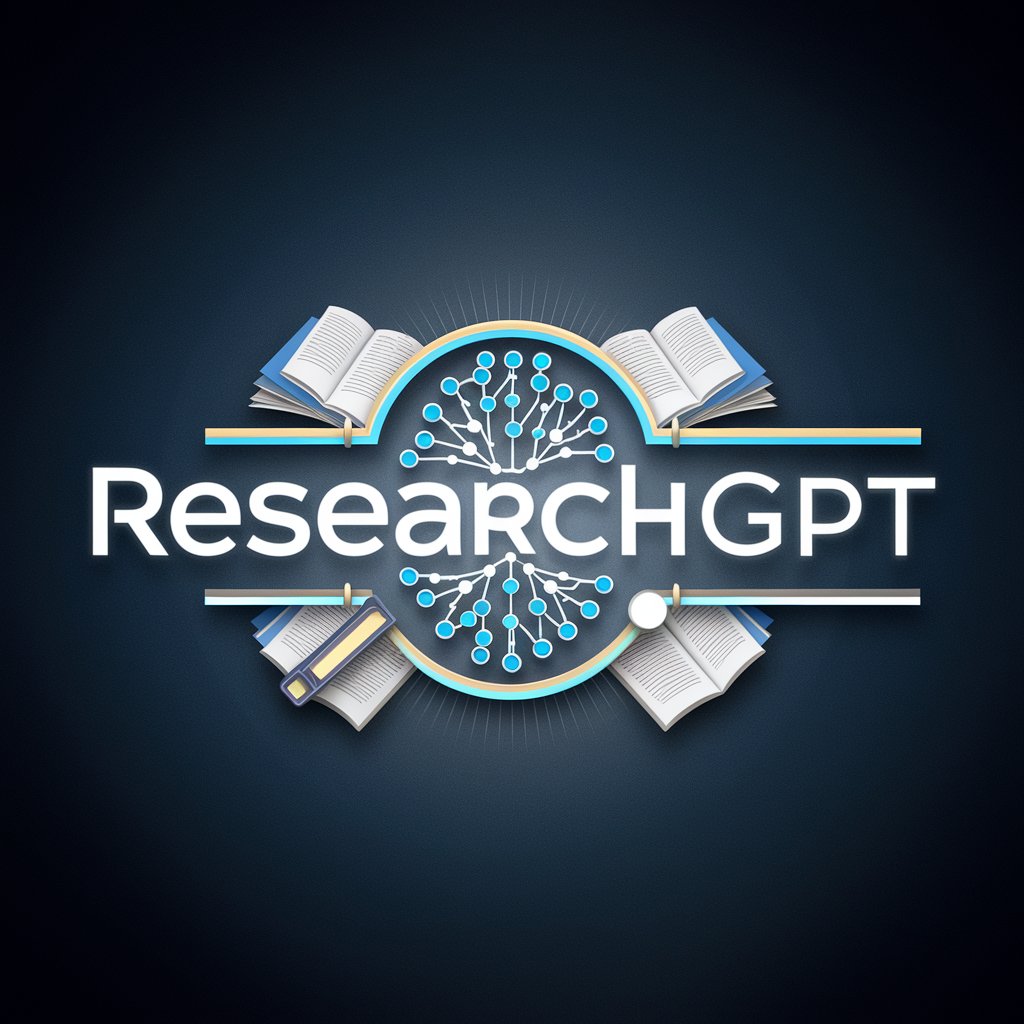
HCU Recovery GPT - AI-powered Content and SEO Assistant

Hello! Let's optimize your website's content.
Elevate Your Content with AI Insight
Analyze the effectiveness of...
Provide recommendations for improving...
Evaluate the user experience on...
Suggest ways to enhance the visibility of...
Get Embed Code
Introduction to HCU Recovery GPT
HCU Recovery GPT is designed as an advanced AI tool tailored to assist with the recovery and improvement of websites affected by Google's Helpful Content Update (HCU). This GPT model is specifically developed to analyze website content, identify areas that may not meet Google's search quality expectations, and suggest actionable improvements. By leveraging deep learning algorithms, HCU Recovery GPT aims to provide personalized advice based on the user’s specific industry, audience, or content type. For example, if a website specializing in digital marketing has experienced a drop in search rankings, HCU Recovery GPT can analyze the site's content to recommend enhancements that align better with Google's guidelines for helpful, user-first content. Powered by ChatGPT-4o。

Main Functions of HCU Recovery GPT
Website Content Analysis
Example
Analyzing a blog post on an e-commerce website to ensure it provides substantial value and adheres to Google's E-A-T (Expertise, Authoritativeness, Trustworthiness) principles.
Scenario
An e-commerce site owner submits a blog post for analysis. HCU Recovery GPT evaluates the post for original research, clarity, and comprehensiveness, then suggests adding expert quotes, improving readability, and citing reliable sources to enhance E-A-T.
Content Improvement Recommendations
Example
Providing specific suggestions to improve the helpfulness and reliability of product reviews by incorporating first-hand usage experiences and comparative analysis.
Scenario
A technology review website receives recommendations to include detailed comparisons with similar products, user experience insights, and visual evidence of product testing, thereby increasing the content's value and alignment with helpful content guidelines.
User Experience Enhancement
Example
Identifying user experience (UX) issues on a website, such as slow page loading times, poor mobile responsiveness, or difficult navigation, and suggesting improvements.
Scenario
After a travel blog is reviewed, HCU Recovery GPT points out that the mobile version of the site takes too long to load and recommends optimizing images and implementing lazy loading to enhance mobile user experience.
Ideal Users of HCU Recovery GPT Services
Website Owners and Content Creators
Individuals or organizations owning or creating content for websites, especially those impacted by Google's Helpful Content Update. They benefit from HCU Recovery GPT by receiving targeted advice to recover or improve their search rankings through enhanced content quality and user experience.
SEO Specialists and Digital Marketers
Professionals specializing in search engine optimization (SEO) and digital marketing strategies. These users can leverage HCU Recovery GPT to stay ahead of Google's evolving guidelines, ensuring their clients' or their own websites are optimized for both user experience and search engine visibility.
E-commerce Businesses
Online retailers and e-commerce platforms looking to enhance the quality of their product descriptions, reviews, and overall content to meet Google's helpful content standards. HCU Recovery GPT helps them identify areas for improvement to attract and retain customers through high-quality, valuable content.

How to Use HCU Recovery GPT
Start Your Journey
Initiate your experience by visiting yeschat.ai for a complimentary trial, accessible immediately without any requirement for login or subscription to ChatGPT Plus.
Define Your Objective
Clearly articulate the purpose of your interaction, whether it's for content creation, SEO analysis, or personalized advice, to ensure the tool's responses are tailored to your needs.
Engage Thoughtfully
Interact with the tool by providing detailed descriptions of your queries or tasks. The more context you give, the better the tool can align its responses to your specific requirements.
Utilize Feedback
Leverage the tool's feedback mechanism to refine your inquiries for more precise outcomes. If initial responses don't fully meet your expectations, use the guidance provided to adjust your approach.
Explore Advanced Features
Experiment with the tool's diverse capabilities beyond your initial use case to discover its full potential. This exploration can uncover new ways the tool can support your objectives.
Try other advanced and practical GPTs
! Architecture Academy !
Empowering architectural learning with AI

HelenGPT.
Empowering families with AI-driven health advice.

👑 Data Privacy for Digital Content Creators 👑
Empowering content with AI-driven privacy

Whimsical Talesmith
Crafting Your Stories, Powered by AI

Fitness Coach
AI-powered personalized fitness coaching

MidjourneyGPT
Transforming ideas into visual prompts.

FOMO.ai eCommerce Product Optimizer (Official)
Enhance Your Store, Boost Your Sales

ŞİB Dilekçe Oluşturucu
Streamline Financial Reporting with AI

UX Fajitas
Empowering UX Journeys with AI

IsabelGPT
Bringing history and culture to life.

N.A.R.C. Bott
Navigate Narcissism with AI-Powered Insights

ResearchGPT
Empowering research with AI-driven insights

Frequently Asked Questions About HCU Recovery GPT
What is HCU Recovery GPT?
HCU Recovery GPT is an AI-powered tool designed to assist users in content creation, SEO optimization, and providing personalized advice based on specific industry or content needs.
How does HCU Recovery GPT personalize advice?
By analyzing the user's input regarding their industry, target audience, or specific content requirements, HCU Recovery GPT tailors its analysis and advice to align closely with the user's unique context and objectives.
Can HCU Recovery GPT help improve my website's SEO?
Yes, HCU Recovery GPT can provide specific recommendations on improving your website's SEO based on the latest guidelines and best practices, including keyword optimization and content quality.
What makes HCU Recovery GPT different from other AI tools?
Its ability to customize advice and generate content that's specifically aligned with the user's industry or audience sets it apart, along with its interactive and detailed scoring system for website analysis.
Is HCU Recovery GPT suitable for academic writing?
Absolutely. HCU Recovery GPT can assist in academic writing by offering insights on structuring papers, ensuring citation compliance, and enhancing the overall quality of academic content.